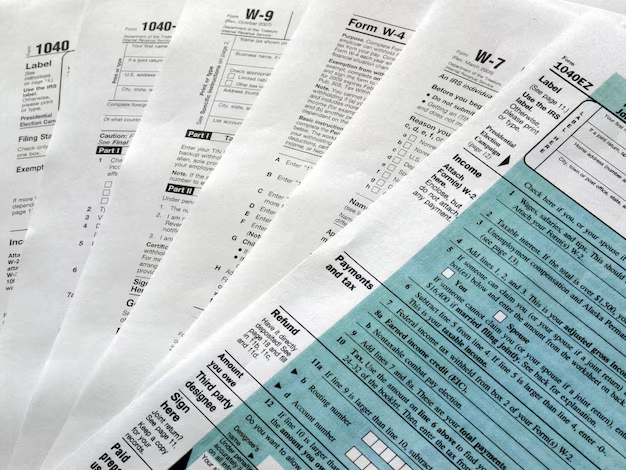Understanding South Carolina’s State Income Tax: What You Need to Know
When it comes to managing your finances, understanding how state income taxes work is crucial. If you’re living in or considering moving to South Carolina (SC), you might be wondering about the state’s tax obligations. Does South Carolina have a state income tax? Let's dive into this topic and explore the essential details, navigating through potential inquiries you might have.
The Basics of South Carolina State Income Tax
South Carolina does indeed have a state income tax, which applies to residents as well as non-residents who earn income within the state. This tax is integral to funding various public services, such as education, infrastructure, and healthcare. Understanding how this tax works can help you better prepare and plan for living or working in South Carolina.
How the Tax System Works
South Carolina levies a progressive income tax system, meaning that tax rates increase with higher income levels. The state’s tax rates range from 0% to 7%. Residents must file a state income tax return if they earn above the threshold set by the state – typically similar to the federal threshold but with some variations based on residency status and income sources.
Determining Your Tax Liability
Residency and Taxation
Your tax liability in South Carolina depends on whether you are a resident, a part-year resident, or a non-resident:
- Residents: Those who live in South Carolina for the entire tax year are taxed on all income, regardless of the source.
- Part-Year Residents: Individuals who move into or out of South Carolina during the year are only taxed on income earned while they are residents.
- Non-Residents: If you don't reside in South Carolina, you will only be taxed on income derived from South Carolina sources, such as work performed within the state.
Income Types Subject to Taxation
South Carolina taxes various forms of income, including:
- Salaries and Wages: Income from employment is taxable.
- Business Income: Profits from self-employed activities or business operations within the state are subject to tax.
- Capital Gains: Income derived from the sale of assets may be taxed, depending on certain exemptions or deductions that may apply.
- Rental Income: Earnings from property rentals in South Carolina fall under taxable income.
Filing Your State Income Tax
Important Considerations for Filing
When it comes time to file your state income tax in South Carolina, consider the following:
- Due Dates: The South Carolina state income tax return is generally due by April 15th, similar to the federal tax deadline, unless extended.
- Forms to Use: Use South Carolina Form SC1040 to file your state income tax return. Additional schedules or forms may be required based on specific deductions or credits you qualify for.
- E-Filing vs. Paper Filing: Residents and non-residents can choose between e-filing, which may be simpler and faster, or traditional paper filing.
Deductions and Credits
Understanding available deductions and credits can significantly impact your tax liability:
- Standard Deduction: This is available to all taxpayers and can reduce the income level subject to tax.
- Itemized Deductions: These include expenses such as mortgage interest, charitable contributions, and medical expenses.
- Tax Credits: South Carolina offers various tax credits, such as the Family Independence Program Credit, which can directly reduce your tax bill.
Common Questions About South Carolina Taxation
How Does SC Tax Compare to Other States?
South Carolina's progressive tax system is similar to that of many other states, though its top rate of 7% is considered moderate. The presence of deductions and credits further balances out tax liabilities, often making the overall tax burden competitive when compared with both neighboring and distant states.
What Happens If I Don't File?
Failing to file a state income tax return or pay the owed taxes on time can result in penalties, interest on unpaid taxes, and even tax liens against your property. It's important to stay compliant and file on time to avoid these consequences.
Are There Exemptions for Retirees?
South Carolina is viewed as tax-friendly for retirees. Social Security benefits are not taxed, and additional deductions may apply to retirement income such as pensions or other retirement plans.
Summary: Key Points on South Carolina State Income Tax 💡
- Tax Rates: Progressive tax rates from 0% to 7%
- Residency Matters: Determines income subject to tax
- Due Dates: Returns due by April 15th annually
- Filing: Options include e-filing or paper filing
- Deductions/Credits: Utilize available tax benefits
- Non-Compliance Penalties: Include fines and interest
Navigating state income taxes in South Carolina is pivotal for financial planning, whether you’re a long-time resident, newly moved, or considering a job located within the state. Understanding the requirements, potential savings from deductions, and maintaining compliance can ensure you manage your obligations efficiently and wisely. Balancing residency, income types, and utilizing available credits will position you for financial clarity and peace of mind as you embrace what South Carolina has to offer.

Related Topics
- Are State Income Tax Refunds Taxable
- Are State Tax Refunds Taxable Income
- Can Business Deductions Reduce Your State Personal Income Tax
- Do I Have To File State Income Tax
- Do You Get State Income Tax Back
- Do You Pay Georgia State Income Tax On Qualified Dividends
- Do You Pay State Income Tax On Qualified Dividends
- Does Al Have State Income Tax
- Does Alabama Have a State Income Tax
- Does Alabama Have State Income Tax
